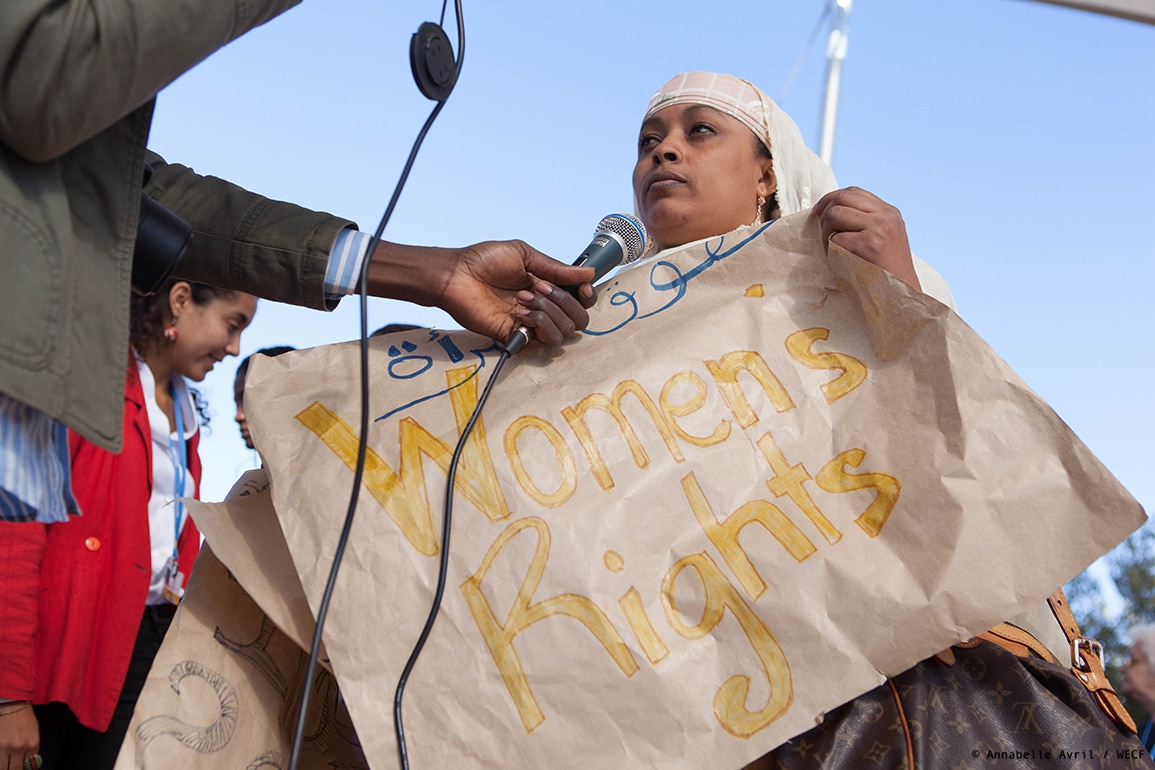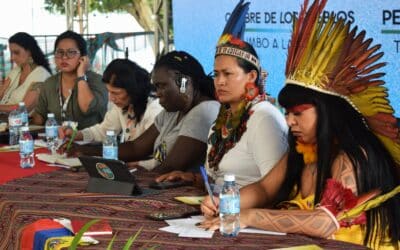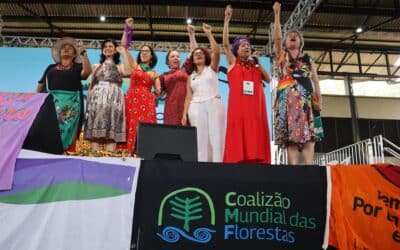by Jeanette Sequeira (Global Forest Coalition) and Audrey Ledanois (Women Engage for a Common Future)
This year, the International Day for the Elimination of Violence Against Women on November 25th comes toward the end of a particularly difficult one for women across the world, who with COVID-19 have faced domestic violence during lockdowns and financial struggles due to job losses and increased unpaid care work. UNWomen has found that 35% of women globally have suffered physical or sexual violence. This statistic—already a few years old—is complemented by a new report by feminist organisations with bottom-up, evidence-based perspectives from communities around the world provides an informative picture of violence against women and the status of women’s rights. Crucially, the report also provides feminist priorities and solutions to combat systemic gender inequality and patriarchal norms, which drive sexual, physical, and psychological violence.
Most often, violence against women is gender based; it is because they are a woman or girl, trans or gender diverse. It results in harmful practices that are driven by social norms and beliefs, such as female genital mutilation, or can be driven by economic and political interests, which results in physical and psychological violence against women human rights defenders. Women with disabilities and other groups facing multiple forms of discrimination are particularly at risk.
Gender-based violence takes many forms. Africa, which is said to have the highest rates of sexual violence against women, shows a high prevalence of harmful traditional practices. Forced (child) marriage, trafficking of young women and girls and early childbearing—often linked to high school dropout as the data from Uganda shows—are still prevalent across the region. UNICEF figures show that female genital mutilation is particularly high in countries like Chad, Liberia and Burkina Faso. Moldova and Georgia even report obstetrical violence and malpractice.
The report warns that, in practice, laws do little to stop violence against women. All countries show important advances on women’s rights in the legal sphere, but large gaps in legislation and implementation. This is also what the UN finds: in 2018 almost a third of countries have gaps in legal frameworks on public life and more than a quarter have legal gaps on violence against women, employment and marriage and family, respectively.
As the Chilean Network against Violence Towards Women asserts, “In general, States do not generate the tools needed to understand and record, much less prevent and eradicate violence against women marginalized by their ethnic, social, and cultural backgrounds. Rather, they are often among the main producers and reproducers of patriarchal violence through their structures and apparatus, such as the judiciary, military and police.”
States also enable predatory practices under capitalism, such as resource grabbing and dispossession, which disrupt traditional livelihoods and customs. The results of gender assessments in Latin America carried out for the report show that Indigenous, peasant and Afro-descent communities are particularly harshly affected by economic, social, and cultural violence resulting from extractive and accumulation-by-dispossession policies. Practices that generate gender-based violence include industrial tree plantations in Mapuche territories in Chile, the expansion of soybean monocultures and intensive livestock farming in Paraguay, and coca plantations and gold exploitation in Colombia.
Why should we assume that States care about these issues? One reason is that five years ago, all UN member countries adopted the 2030 Agenda for Sustainable Development, a plan that promotes “gender equality and the empowerment of women and girls.” To do this, we believe that the 2030 Agenda must be systemic, inclusive and accountable.
The report makes five key feminist demands: end discrimination against women and girls in all their diversity, ensure economic justice for all, take urgent climate and forest conservation action with a focus on gender justice, guarantee women’s equal participation in decision-making, and end violence against women and girls and ensure bodily autonomy and sexual and reproductive health and rights.
The last point is the one that we must highlight today, and with particular urgency in light of the challenges wrought around the world by the COVID-19 pandemic and the increase of domestic violence, which UNWomen deems the “shadow pandemic.” Worryingly, domestic violence against women is widespread and considered acceptable by a significant share of people, including women. In Serbia for instance, the report finds that women make up about 80% of people facing domestic violence. In Georgia, almost a quarter of women and one third of men believe wife-beating is justifiable under certain circumstances.
Violence against women and harmful practices continues to be a major obstacle to women’s rights and even a strategy of oppression despite legal reforms in many countries. This includes addressing all forms of violence—domestic, structural, political and economic—as well as the underlying systems and norms that allow for it to happen. It also requires active support and protection of women human rights defenders and their organizations, who are facing major risks to their health and lives today.




